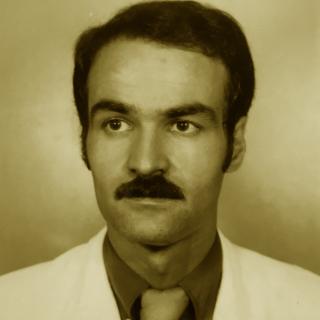André Tièche was born on 29 July 1947 in Frutigen, Switzerland, and grew up in Bern. When he was 14, he moved to Geneva, where he began his secondary studies in the Latin department.
Perceptive and likable, André did various short stints as a carpenter, delivery driver, seaman and musician. He also spent half a year teaching underprivileged youth in Geneva. In 1969, he began working in the training centre of UBS, a large Swiss bank. In 1971, he moved with his small family to Buenos Aires to work for a grain exporter. Returning to Switzerland two years later, he went back to UBS, taking a job in public relations, then worked as Keith Richards’ private secretary for a year. He left that position in 1975, the same year he applied to the ICRC. He was keen for a more meaningful career, although he perceived his lack of university training to be a hindrance.
For his first assignment with the ICRC, André was sent to Angola in April 1976. He was tasked with managing drug supplies and did his job well despite its complexity. Soon after that six-month assignment, André went to Beirut, Lebanon, for a full year. In late 1977, he served as the Lebanon coordinator for several months at the ICRC’s headquarters.
André made the most of his time in Geneva but yearned to get back to the field, and he accepted the ICRC’s offer to go to Rhodesia. He started work as head of sector for Manicaland at the end of January 1978. Unfortunately, the danger caught up with him on one of his field visits. On 18 May 1978, André was travelling to the small village of Nyamaropa with two colleagues – Alain Biéri and Charles Chatora – in order to provide support and provisions to people who had been isolated by the fighting. Their clearly marked ICRC vehicle was ambushed, and the three men were killed by gunfire. André was 30 years old and left behind a 11-year old son.
André brought out the best in people, and he sought to bring out the best in himself. He was motivated by a desire to help those less fortunate, acting out of respect for others rather than a sense of charity or pity. Once he had found his calling in life, he embraced it and pursued it.


